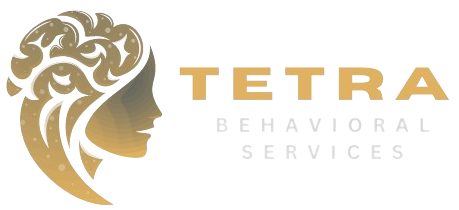Understanding GAD: A Brief Overview
Generalized Anxiety Disorder, commonly known as GAD, is a mental health condition characterized by excessive and uncontrollable worry or anxiety about everyday life events and activities. People with GAD often experience persistent and excessive anxiety that interferes with their ability to function normally.
Symptoms of GAD:
Symptoms of GAD may include:
Excessive Worry: Feeling anxious or worried about a wide range of issues, including health, work, family, finances, and other everyday concerns.
Restlessness: Feeling restless or on edge, having difficulty relaxing, or feeling keyed up or tense.
Fatigue: Feeling tired or fatigued, even after adequate rest or sleep.
Difficulty Concentrating: Finding it hard to concentrate or focus on tasks due to persistent worry or anxiety.
Muscle Tension: Experiencing muscle tension, aches, or soreness, often due to prolonged stress and anxiety.
Irritability: Feeling easily irritable or on edge, and having difficulty controlling feelings of frustration or anger.
Sleep Problems: Having difficulty falling asleep, staying asleep, or experiencing restless, unsatisfying sleep patterns.
Causes and Treatment GAD:
Causes:
he exact cause of GAD is not fully understood, but it is believed to be influenced by a combination of genetic, biological, and environmental factors. Factors such as family history of anxiety disorders, traumatic life events, chronic stress, and imbalances in brain chemicals (neurotransmitters) may contribute to the development of GAD.
Treatments:
Treatment for GAD typically involves a combination of Therapy, Medication, and Lifestyle changes. Cognitive-behavioral therapy (CBT) is a common form of therapy that helps individuals identify and challenge negative thought patterns and develop coping strategies to manage anxiety.
Medications such as selective serotonin reuptake inhibitors (SSRIs) or serotonin-norepinephrine reuptake inhibitors (SNRIs) may be prescribed to help alleviate symptoms of anxiety.
Lifestyle changes such as regular exercise, stress management techniques, relaxation exercises, and avoiding stimulants like caffeine and nicotine can also be beneficial in managing GAD.
Seeking Help for Generalized Anxiety Disorder (GAD):
If you or someone you know is experiencing symptoms of GAD, it’s important to seek help from a healthcare professional, such as a Nurse Practitioner or therapist, who can provide a proper diagnosis and recommend appropriate treatment options. GAD is a treatable condition, and with the right support and treatment, individuals can learn to manage their symptoms effectively and improve their quality of life.
ONLINE GAD APPOINTMENT
Avoid the hassle of waiting rooms and access expert GAD treatment from the comfort of your home with TETRA BEHAVIORAL SERVICES.
Schedule Your GAD Consultation
Make an appointment online, call us, or email us.
Connect with Your Doctor Online
Talk to one of our GAD specialists from the comfort of your home.
Frequently Asked Questions
GAD is one of the most common anxiety disorders, affecting approximately 3-5% of the adult population worldwide.
GAD is diagnosed based on a thorough assessment of symptoms by a mental health professional. There are no specific tests for GAD, but medical tests may be conducted to rule out other possible causes of symptoms.
Yes, GAD can be treated with a combination of therapy, medication, and self-help strategies. Cognitive-behavioral therapy (CBT) is often recommended as the first-line treatment for GAD.
Untreated GAD can lead to significant impairment in daily functioning, increased risk of developing other mental health disorders such as depression, substance abuse problems, and physical health problems such as heart disease and gastrointestinal issues.
Support for GAD can be found through mental health professionals, nurse practitioner and helplines. It’s important to reach out for help if you or someone you know is struggling with symptoms of GAD.
© 2024 Created by Harbor SEO COMPANY

